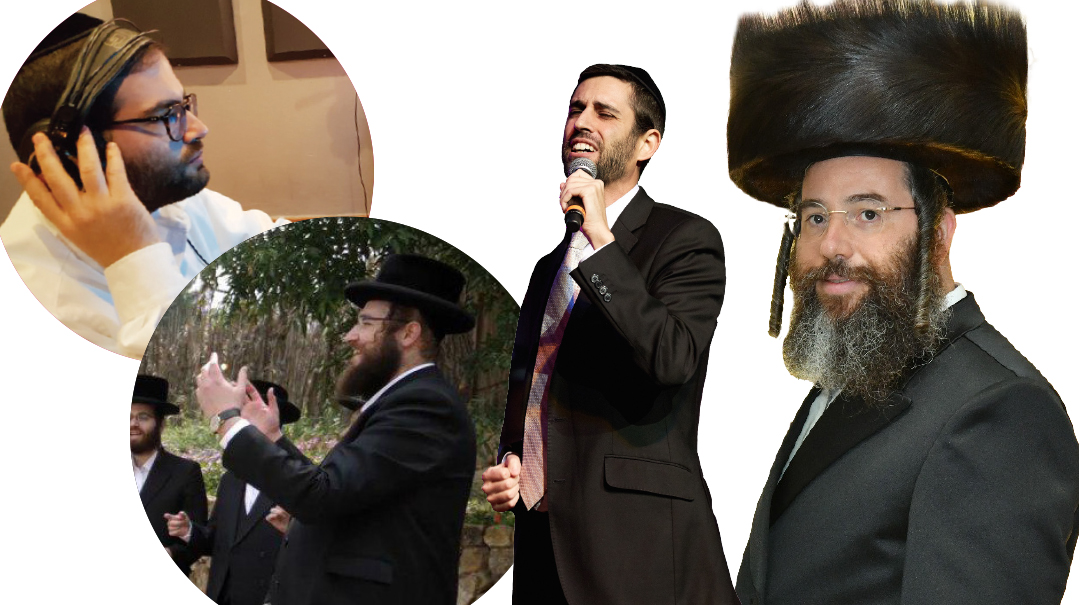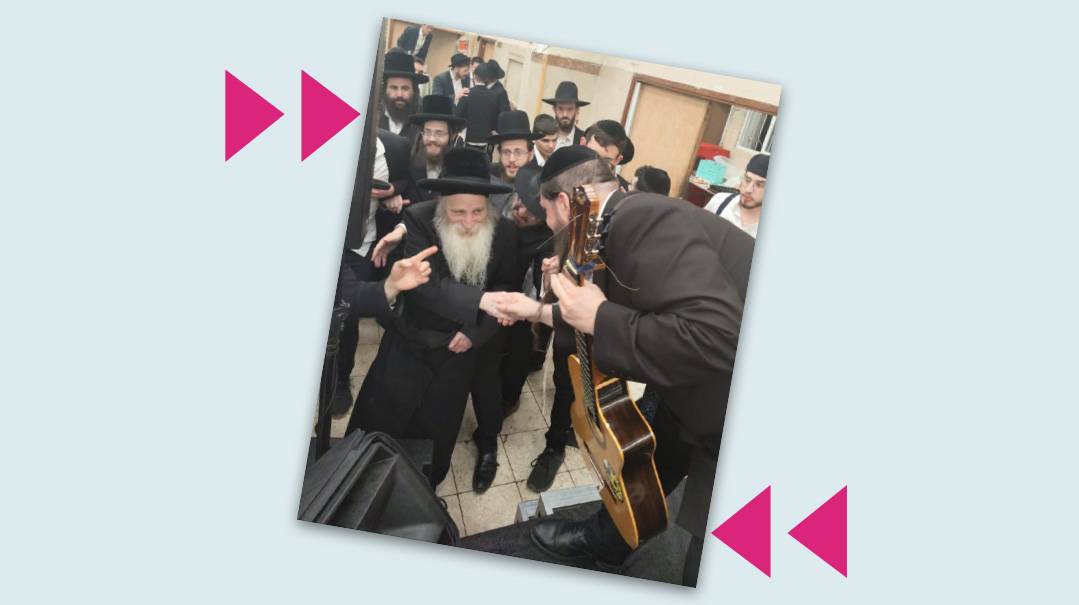Notes of Faith and Hope
| October 31, 2023“I feel like we’re in the shloshim period — I haven’t been listening to music, and I can barely play”

When Jews in Eretz Yisrael are dealing with unthinkable tragedy and still burying their dead, can one even talk about music at such a time? Or perhaps, on the other hand, it’s more relevant than ever in the face of so much pain.
And, how does living in Eretz Yisrael under the threat of war affect your work these days?
Totally There With Us
Yitzy Berry
“I sat on the couch with my kids and could hardly play”
For the first week after Simchas Torah, everything seemed to have stopped. Like everyone else, we were in a state of shock — it just didn’t seem to be a time for music. I couldn’t work. Everyone I know stopped what they were doing. The artists who were in Eretz Yisrael for Succos and were planning to do some studio work afterward cancelled their slots and flew back home, and Rabbi Shloime Taussig, who was scheduled to fly in and work on his next album with us, wasn’t able to come. The studio was silent, and at home, the kids were indoors, their schools closed. I sat on the couch with them, but I could hardly even play my guitar, until my fingers found the profound song of hope, “Ve’afilu behastarah, shebetoch hahastarah, bevadai gam sham nimtza Hashem Yisbarach…” Even in the deepest concealed darkness, Hashem is totally there with us.
The other song I found myself playing was from Eichah — “Shifchi kamayim libeich…” because it really was a week of Eichah times.
That Thursday, Rabbi Baruch Chait called both me and Naftali Kempeh, asking us to join a Zoom meeting with his yeshivah bochurim. They were cooped up at home, and gatherings of over 50 people weren’t allowed, but he wanted to hold a Zoom of chizuk and singing, like the mishmar he runs in his yeshivah every Thursday night. We joined Rabbi Chait in his home in Har Nof — he offered the boys chizuk, and we sang and played “Av harachamim, Hu yifkod berachamim… shemasru nafsham al kedushas haSheim…” It was very powerful, leaving me personally feeling strengthened and grateful.
It was only on the next Thursday, almost two weeks after the massacre, that I was able to compose something. I wrote a melody for “Gam ki eilech… Although I walk in the valley of the shadow of death, I will not fear evil, because You are with me.” And I also composed some Hebrew lyrics, about the deafening silence, the babies silenced from crying in their cribs, with a chorus about the mother who is not silenced but still crying for us after all these years — Rachel Imeinu.
Under Fire
Reb Yanky Daskal
“Now, more than ever, we need to sing for koach”
I live in Ashdod, where the war situation is intense, and we are constantly under rocket fire, but I’m still singing. We get a lot of sirens here, yet baruch Hashem very few injuries. My family members are all home, school is closed, and lessons are held over the phone, and now, more than ever, we need to sing for koach — to draw strength to deal with all this. Songs are not only for happy moments, but a source of chizuk at times like these, too. A couple of years ago, I released an album titled Nohr Mit Emunah [Only with Faith], and those songs and other songs of emunah and bitachon are constantly on our lips.
Weddings are still taking place, although on a much smaller scale, while other events have been postponed indefinitely. I had bookings for a few large chassidish dinners in Cheshvan, plus other events in Eretz Yisrael and the US, but all that has been called off for now.
Between Two Worlds
Rabbi Pinchas Bichler, Malchus choir
“We go to weddings as if there is no war, and go to war as if there are no weddings”
I’m moving between two worlds at the moment. We say here that we go to weddings as if there is no war, and go to war as if there are no weddings. In the evenings, I provide happy music for chasunahs, because my job is to help each chassan and kallah celebrate their special once-in-a-lifetime event with a full heart and real joy. But during the day, at home here in Bnei Brak, we face sirens and alarms, and our children are afraid.
The week after Succos, our choir was fully booked with bein hazmanim events, including one in Ofakim two days after Yom Tov. Of course, everything beside weddings has been cancelled, including the big Dirshu event in Vienna.
I’ve received many video clips of soldiers singing our song, “Avinu Malkeinu…. Shaarei Shamayim Psach,” which is encouraging for me, and one of our early songs, from the words of Tefillas Geshem said on Shemini Atzeres — “Toldosam nishpach damam alecha kamayim,” has come back into circulation in the most tragic way.
Last week I was at a chuppah in London, singing with Shloime Gertner and Shmueli Ungar, and before breaking the glass, after “Im Eshkacheich,” we also sang a moving “Acheinu Kol Beis Yisrael.” The one video I’m working to bring out at this time is a very moving “Koolulam” mass singing event of 3,000 bochurim singing “Racheim.” Although it took place during this summer’s bein hazmanim, it’s a very relevant expression and tefillah for these challenging days.
We’re in Shloshim
Ari Goldwag
“People all over are turning to prayer”
I was going to spend three weeks after Succos finishing my new album, but I’ve stopped cold — I just can’t do it. Emotionally, I can’t. I had a fun, upbeat video ready to release on the song, “Live to Give,” but that is not coming out now, either.
I feel like we’re in the shloshim period — I haven’t been listening to music, and I can barely play. I sat down with my guitar but I don’t feel like playing anything. I feel I don’t have any words. I think some of the local stores have been playing a cappella songs, because it just feels like a time of mourning.
The one song I did think was appropriate to get out there was “Ana Hashem Aneinu,” composed together with Yitzy Kaplowitz from Baltimore. The high part is “Ana Hashem hoshiah na, Ana Hashem hatzlichah na,” and the low part was originally just a niggun. I had added the words “Zeh hayom asah Hashem,” but after Simchas Torah, I made a switch. We were doing hakafos in our shul and running back and forth to the shelter as rockets were fired at us, and the words we were saying were, “Melech Olamim hoshiah na… podeh umatzil hatzlichah na… go’el chazak aneinu beyom koreinu,” so I put in those words instead.
I noticed a lot of views of the song “Shir Hamaalot,” which I sang with Yosef Karduner. People all over are really turning to prayer. One bus driver told me he played it on his bus, and passengers were joining in to daven with the song.
(Originally featured in Mishpacha, Issue 984)
Oops! We could not locate your form.






